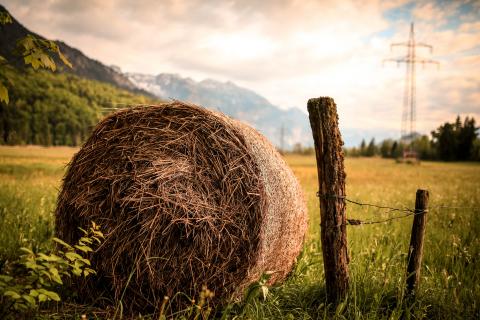
Valorize human urine in agriculture?
Agricultural production is highly dependent on the use of synthetic fertilizers for nitrogen, or of mining origin for phosphorus and potash. In France, the sewerage system has become the main way of treating wastewater. However, urine represents 1% of the volume of wastewater and accounts for 80% of nitrogen and 50% of phosphorus, nutrients that are essential for plant growth.
The challenges of urine recovery are multiple: less water consumption, less energy consumption in wastewater treatment plants, less discharge of nitrogenous pollutants into waterways and less dependence on chemical nitrogen fertilizers for crops.
However, several studies have shown the presence of organic micropollutants in urine, including drug residues, as renal filtration is the mode of elimination for most drugs (50-70%).
The project aims to determine the concentrations of about 50 organic micropollutants, mainly drug residues, in treated and stabilized urine (Aurin type) and in urine collected on the Plateau de Saclay territory and its surroundings (office type) and treated by passage through an activated carbon filter. Non-targeted analyses will provide fingerprints of organic micropollutants, including metabolites and transformation products, potentially present in the urine and to follow their fate after treatment and input to the soil.
The deliverables of the project will be reports detailing the results of these analyses in order to continue the evaluation of the environmental impacts associated with the recycling of urine in agriculture, in addition to work initiated in the framework of the Agrocapi project financed by ADEME. The project will allow better documentation of the presence of drug residues in treated or untreated human urine and the impact on soils, and will facilitate the emergence of other recovery projects, particularly in market gardening.
This project (2022-2025) involves:
- 2 laboratories of C-BASC and Graduate School Biosphera of the university: Marjolaine Deschamps (ECOSYS, INRAE) and Christine Aubry (SADAPT, AgroParisTech) as project leaders, Nathalie Bernet and Ghislaine Delarue (research technicians ECOSYS, INRAE), Sabine Houot and Florent Levavasseur (ECOSYS, INRAE)
- 2 external laboratories: LEESU and OSU Efluve
- 4 non-academic partners: the association Terre et Cité, the Chamber of Agriculture of Ile-de-France, the farm of La Martinière and an independent designer.
This is a Living Lab project, a space for co-construction of research projects with local actors.

